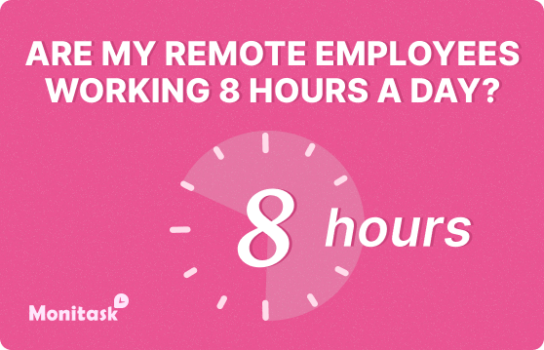Referral Bonus
Understanding Referral Bonuses in the Modern Workplace
In today's competitive job market, organizations are constantly seeking innovative ways to attract top talent. One strategy that has gained significant traction is the implementation of referral bonus programs. These programs incentivize current employees to recommend qualified candidates for open positions within their company. By leveraging the networks of existing staff members, businesses can tap into a pool of potential hires who may not be actively seeking new opportunities but could be an excellent fit for the organization.
Referral bonuses have become an integral part of many companies' recruitment strategies, offering a win-win situation for both the employer and the referring employee. This comprehensive guide will delve into the intricacies of referral bonus programs, exploring their benefits, challenges, and best practices for implementation.
What Exactly is a Referral Bonus?
A referral bonus is a monetary or non-monetary reward given to an employee who successfully recommends a candidate who is subsequently hired and remains with the company for a specified period. The bonus is typically paid out after the new hire has completed a predetermined probationary period, ensuring that the referral was indeed a good fit for the organization.
The amount and structure of referral bonuses can vary widely depending on the company's size, industry, and the position being filled. Some organizations offer flat-rate bonuses, while others may provide a percentage of the new hire's starting salary or a tiered system based on the level of the position filled.
The Evolution of Referral Bonus Programs
Referral programs have been around for decades, but their importance has grown significantly in recent years. As the war for talent intensifies, companies are recognizing the value of leveraging their employees' networks to find qualified candidates who align with their culture and values.
Historically, referral bonuses were often informal and inconsistently applied. However, as HR practices have evolved, these programs have become more structured and integrated into overall recruitment strategies. The advent of social media and professional networking platforms has further amplified the potential reach of employee referrals, making them an even more powerful tool in the modern recruiter's arsenal.
The Benefits of Implementing a Referral Bonus Program
Cost-Effective Recruitment
One of the primary advantages of referral bonus programs is their cost-effectiveness compared to traditional recruitment methods. While there is an upfront cost associated with paying out bonuses, the overall expenses are often lower than those incurred through job board postings, recruiters' fees, or extensive advertising campaigns.
Moreover, the time-to-hire for referred candidates is typically shorter, reducing the costs associated with prolonged vacancies and lost productivity. This efficiency can lead to significant savings in the long run, making referral programs an attractive option for companies looking to optimize their recruitment budgets.
Higher Quality Candidates
Employees who refer candidates often have a good understanding of both the company culture and the requirements of the position. This insider knowledge allows them to pre-screen potential applicants, resulting in a higher quality pool of candidates for the HR team to consider.
Additionally, referred candidates are more likely to have a realistic expectation of the job and the company, having received insights from their referrer. This alignment can lead to better job satisfaction and reduced turnover rates among new hires.
Improved Employee Engagement and Retention
Referral bonus programs can boost employee engagement by giving staff members a sense of ownership in the company's growth. When employees successfully refer someone, they feel valued and recognized for their contribution to the organization's success.
Furthermore, having a friend or acquaintance join the company can enhance an employee's job satisfaction and strengthen their connection to the workplace. This increased engagement can lead to higher retention rates among existing staff, creating a positive ripple effect throughout the organization.
Enhanced Company Culture
When employees refer candidates who share similar values and work ethics, it can reinforce and strengthen the existing company culture. New hires who come through referrals often integrate more quickly into the team, as they already have a connection within the organization.
This cultural alignment can lead to improved teamwork, communication, and overall workplace harmony, contributing to a more positive and productive work environment.
Challenges and Considerations in Implementing Referral Bonus Programs
Ensuring Fairness and Diversity
One potential drawback of referral programs is the risk of creating a homogeneous workforce. Employees tend to refer individuals from similar backgrounds, which can inadvertently lead to a lack of diversity within the organization.
To mitigate this issue, companies must balance their referral programs with other recruitment strategies that promote diversity and inclusion. This may include targeted outreach to underrepresented groups, partnerships with diverse professional organizations, and unconscious bias training for hiring managers.
Managing Employee Expectations
Clear communication is crucial when implementing a referral bonus program. Employees need to understand the criteria for eligible referrals, the bonus structure, and the timeline for payout. Without proper guidance, misunderstandings can lead to disappointment and frustration among staff members.
It's also important to manage expectations regarding the hiring process. Just because an employee refers someone doesn't guarantee that person will be hired. HR professionals must be prepared to handle situations where referred candidates are not selected, ensuring that the referring employee understands the decision-making process.
Avoiding Conflicts of Interest
In some cases, referral bonus programs can create potential conflicts of interest, particularly if employees are incentivized to refer candidates for positions they directly supervise or work closely with. To address this concern, companies should establish clear guidelines on who is eligible to receive bonuses for specific positions.
Additionally, it's crucial to maintain a fair and transparent hiring process, ensuring that all candidates, whether referred or not, are evaluated based on their qualifications and fit for the role.
Best Practices for Designing and Implementing a Referral Bonus Program
Establish Clear Objectives and Metrics
Before launching a referral bonus program, it's essential to define clear objectives and key performance indicators (KPIs). These might include metrics such as the percentage of hires made through referrals, the quality of referred candidates, or the retention rate of referred employees.
By establishing these benchmarks, organizations can effectively measure the success of their program and make data-driven decisions to optimize its performance over time.
Create a Competitive Bonus Structure
The bonus amount should be significant enough to motivate employees to participate actively in the program. Research industry standards and consider factors such as the difficulty of filling certain positions when determining your bonus structure.
Some companies opt for tiered systems, offering higher bonuses for hard-to-fill roles or executive positions. Others may provide non-monetary rewards, such as extra vacation days or professional development opportunities, in addition to or instead of cash bonuses.
Develop a User-Friendly Referral Process
Make it easy for employees to refer candidates by implementing a straightforward, user-friendly process. This might include creating a dedicated referral portal on the company intranet or integrating referral functionality into existing HR software.
Provide clear instructions on how to submit referrals and offer resources to help employees identify suitable candidates within their networks. The simpler the process, the more likely employees are to participate actively in the program.
Communicate Regularly and Transparently
Effective communication is key to the success of any referral bonus program. Regularly remind employees about the program and its benefits, and share success stories to keep engagement high.
Be transparent about the status of referrals, providing timely updates to referring employees throughout the hiring process. This openness helps maintain trust and enthusiasm for the program, even when referrals don't result in hires.
Recognize and Celebrate Successful Referrals
Beyond the monetary bonus, consider implementing additional recognition for successful referrals. This could include public acknowledgment at company meetings, special badges or awards, or featuring successful referrers in company newsletters or intranets.
Celebrating these contributions not only motivates the individual referrer but also encourages other employees to participate in the program.
Legal and Ethical Considerations
Compliance with Employment Laws
When implementing a referral bonus program, it's crucial to ensure compliance with all relevant employment laws and regulations. This includes adhering to equal employment opportunity (EEO) guidelines and avoiding any practices that could be perceived as discriminatory.
Consult with legal counsel to review your referral bonus policy and ensure it aligns with current labor laws and industry-specific regulations.
Ethical Considerations in Bonus Distribution
Establish clear guidelines on who is eligible to receive referral bonuses and under what circumstances. Consider implementing policies that prevent conflicts of interest, such as prohibiting bonuses for referrals to positions within an employee's direct line of management.
It's also important to address situations where multiple employees refer the same candidate. Having a well-defined policy for handling these scenarios can help avoid potential disputes and maintain fairness in the program.
Measuring the Success of Your Referral Bonus Program
Key Performance Indicators
To evaluate the effectiveness of your referral bonus program, track key performance indicators such as:
- Percentage of total hires made through referrals
- Quality of referred hires (measured by performance reviews and retention rates)
- Time-to-hire for referred candidates compared to other sourcing methods
- Cost-per-hire for referred candidates
- Employee participation rate in the referral program
Regularly analyze these metrics to identify trends and areas for improvement in your referral bonus strategy.
Gathering Feedback
Solicit feedback from both referring employees and hired referrals to gain insights into the program's strengths and weaknesses. This information can be invaluable for refining your referral bonus strategy and addressing any pain points in the process.
Consider conducting surveys or focus groups to gather detailed feedback on various aspects of the program, from the ease of submitting referrals to the perceived fairness of the bonus structure.
The Future of Referral Bonus Programs
Leveraging Technology
As technology continues to evolve, referral bonus programs are likely to become more sophisticated and data-driven. Artificial intelligence and machine learning algorithms may be employed to identify potential matches between open positions and employees' networks, making the referral process more proactive and targeted.
Additionally, gamification elements could be introduced to increase engagement with referral programs, turning the process into a more interactive and rewarding experience for employees.
Adapting to Changing Workforce Dynamics
As the nature of work continues to evolve, with remote and gig economy roles becoming more prevalent, referral bonus programs may need to adapt. Companies might expand their programs to include referrals for contract or project-based positions, or develop strategies to encourage referrals from a geographically dispersed workforce.
Furthermore, as younger generations enter the workforce, referral programs may need to align with their values and preferences, potentially incorporating more social and community-oriented incentives alongside traditional monetary bonuses.
Conclusion
Referral bonus programs have proven to be a valuable tool in the modern recruiter's arsenal, offering a cost-effective way to source high-quality candidates while simultaneously boosting employee engagement. When designed and implemented thoughtfully, these programs can significantly enhance an organization's recruitment efforts and contribute to a positive company culture.
However, it's important to approach referral bonuses with a strategic mindset, carefully considering the potential challenges and ethical implications. By establishing clear objectives, creating a fair and transparent process, and regularly evaluating the program's effectiveness, organizations can harness the full potential of employee referrals to build strong, diverse, and talented teams.
As the job market continues to evolve, referral bonus programs will likely remain an essential component of successful recruitment strategies. By staying attuned to emerging trends and technologies, companies can adapt their referral programs to meet the changing needs of both their workforce and the broader talent landscape, ensuring a steady pipeline of qualified candidates for years to come.


